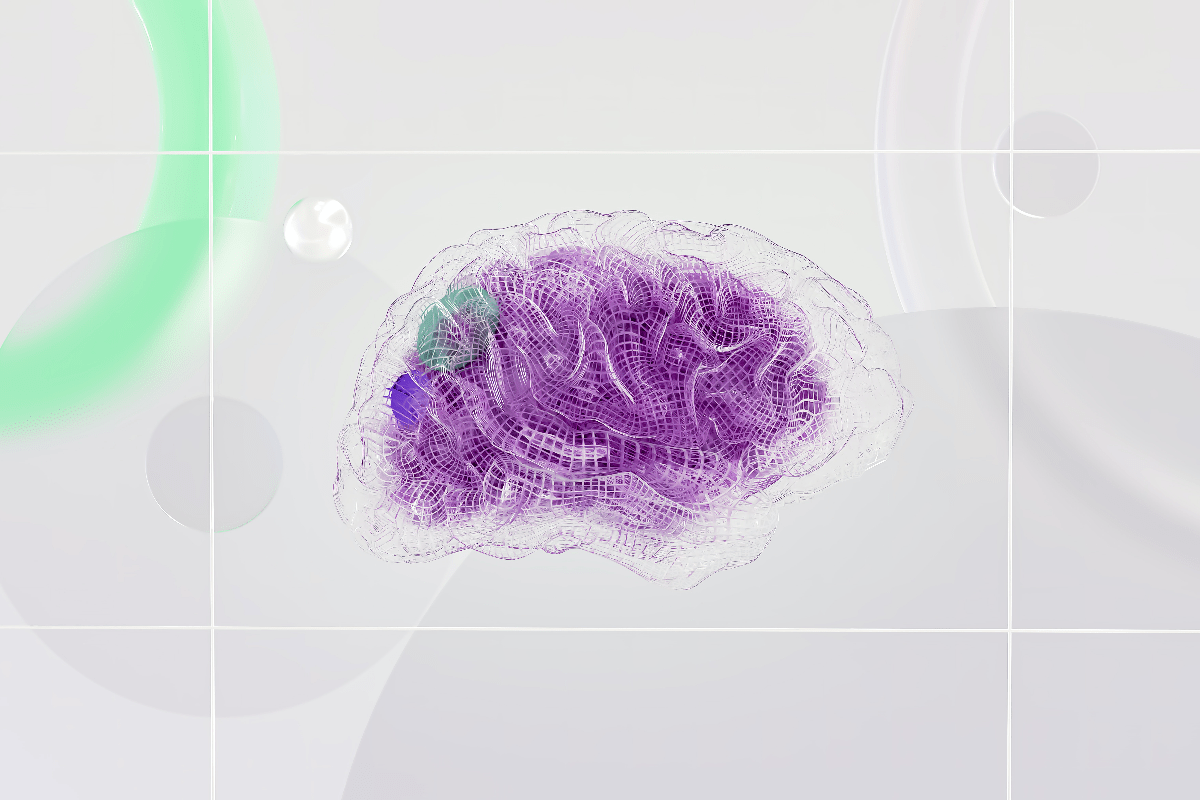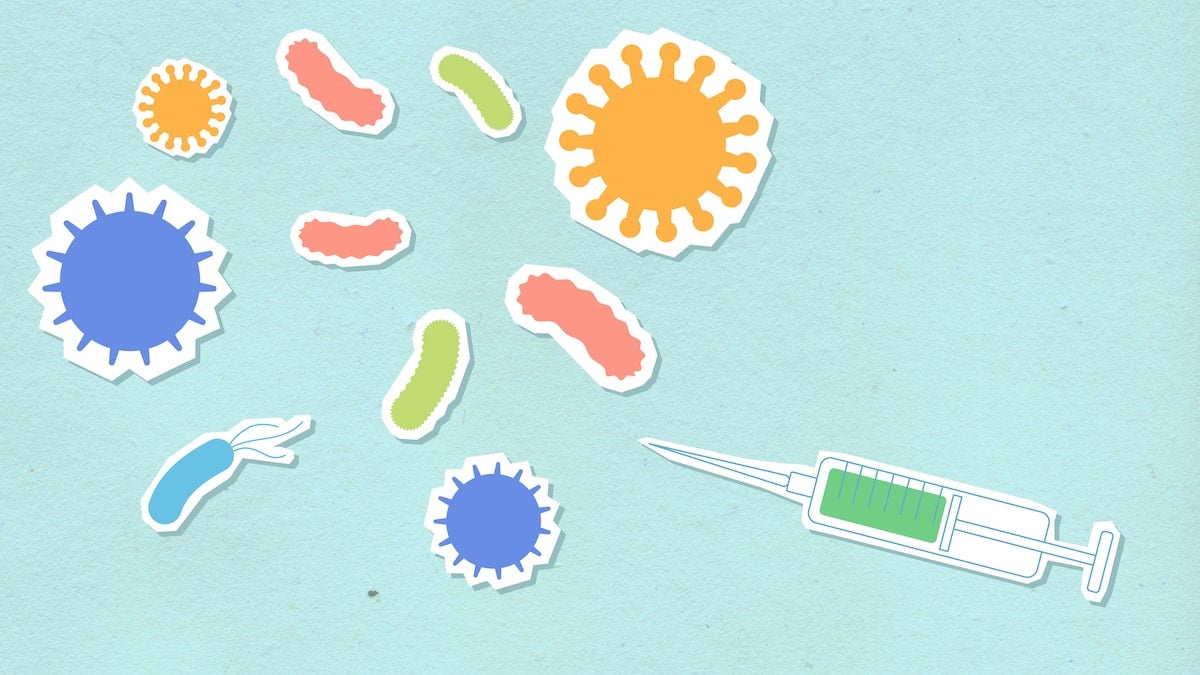
Step into the future of healthcare, where technology meets human-directed patient care. Imagine a world where doctors are armed with an assistant that never sleeps, tirelessly analyzing medical data to help diagnose diseases before symptoms manifest. Envision a patient's journey that's tailored uniquely to their genetic makeup and medical history, resulting in treatments that are as individual as fingerprints.
This is not science fiction; it's the aspirations of integrating Artificial Intelligence (AI) in healthcare, a revolution that's already underway, with the potential to transform how healthcare is delivered. In recent years, an exciting shift has been taking place in the field of healthcare and we'll explore some of the ways AI is expected to change healthcare for the better in this article.
1. Faster and More Accurate Diagnoses

One of the most promising applications of AI in healthcare is its ability to assist doctors in making faster and more accurate diagnoses. A 2023 journal discussed how AI-powered diagnostic tools have the potential to help doctors catch diseases at earlier stages, leading to better treatment outcomes and more lives saved. Through the utilization of advanced computer algorithms, AI can analyze substantial volumes of medical data, identifying intricate patterns and correlations that might not be easily discernible through traditional methods.
Researchers tested if machine learning, an application of AI, could attain clinically acceptable accuracy when evaluating imaging data for radiotherapy planning. Machine learning involves teaching computers to learn from data so that they can make accurate predictions and decisions without needing explicit instructions.
This study involved analyzing 242 head and neck and 519 pelvic computed tomography (CT) scans obtained from 8 different medical centers. These centers had diverse patient populations and used different methods for capturing the images. Here, the AI demonstrated accuracy comparable to expert opinions, with agreement observed for 13 out of 15 structures. Impressively, it also decreased the time needed for annotations, with an average reduction of 93% per scan. This is important because in personalized radiotherapy planning, it's crucial to accurately outline tumors and healthy organs. However, the process can be time-consuming for oncologists, and there can be variations in how different medical institutions do it. This study highlights the potential of AI in making this process more efficient and consistent across different healthcare facilities.
Despite the promising prospects, the integration of AI into medical diagnostics is presently at an early developmental stage. According to this study, it is projected that it will require another 5-10 years for this technology to become fully integrated within the medical field. Overcoming technical complexities, navigating regulatory frameworks, and addressing ethical considerations are pivotal challenges that must be addressed to fully harness the potential of AI in improving diagnostic practices.
2. Personalized Treatment Plans

Each of us is unique, and thus our bodies respond differently to treatments. AI can help doctors create personalized treatment plans based on analysis of a patient's medical history, genetics, and other relevant data.
The rise of advanced biomedical research tools like DNA sequencing, imaging techniques, and health monitoring devices has led to an explosion of data. Medical professionals and scientists alike face the challenge of making sense of this vast volume of information. While numerous methods have been devised to manage this "big data," using AI appears to be a particularly promising approach.
These technologies have also shown us that people differ significantly in their genetics and responses to diseases and treatments. Thus, a concept known as precision medicine came about to align treatment with the distinct attributes of each patient. AI can help a lot here, as this study suggests. For example, leveraging AI techniques across diverse sets of data offers a chance to enhance our comprehension of diseases on a cellular level. This could result in pinpointing clusters of diseases and specific patient populations, enabling more precise preventive tactics. These advancements hold notable potential, especially in areas like cancer, to pave the way for a future where personalized healthcare experiences become achievable for every individual.
Overall, incorporating this technology holds prospects for finding the best ways to treat each person, from researching new treatments to testing their effectiveness.
3. Speeding Up Drug Discovery

Traditionally, finding effective drugs has been uncertain and time-consuming, with less than 10% of candidates passing clinical trials. But AI is changing that, offering a way to greatly increase the chances of finding new drugs that can be turned into real treatments. As Pfizer’s Vice President and Head of Information Management Boris Braylyan puts it in the quote below, AI possesses the potential to contribute significantly to identifying which medications are not worth pursuing.
“Using data to make faster decisions on a medicine’s potential would allow us to re-allocate resources, dollars, and expertise to the next promising candidate faster.”
The magic of AI lies in its ability to analyze complex genetic data and predict how different traits and diseases develop. This prediction capability is crucial in drug discovery, helping researchers identify the right compounds that could become new medicines.
In a groundbreaking feat, an AI-engineered drug molecule named DSP-1181, aimed at treating patients with obsessive-compulsive disorder (OCD), has entered human trials within a mere 12 months, defying the typical four to six year timeline. Crafted via collaboration between the British startup Exscientia and Japanese pharmaceutical giant Sumitomo Dainippon Pharma, this drug was discovered by employing algorithms that combed through potential compounds within an extensive database. Notably, this milestone prefaces a transformative era for drug discovery, showcasing AI's capacity to accelerate drug development, thereby enhancing the efficiency of delivering effective treatments to patients, and potentially saving both time and money in the process.
4. Streamlining Administrative Tasks

AI isn't just changing how doctors treat patients—it's also transforming the way healthcare information is managed and stored according to this study. Natural Language Processing (NLP), which is a specialized field of AI, serves as a bridge between human language and computational understanding, essentially allowing computers to grasp the meaning from human language just like how people understand each other. Its relevance is particularly pronounced in transforming clinicians' narratives into structured information.
For example, Microsoft’s Nuance developed a medical scribe application named Dragon Ambient eXperience (DAX) Express. Powered by OpenAI's GPT-4, this integration of AI aims to revolutionize healthcare by automating note-taking during doctor-patient interactions, by providing the medical profession with a document that emphasizes the relevant medical concerns while excluding casual conversation, and permits post-interaction edits to ensure comprehensive content. This approach relieves administrative duties from physicians, enabling them to concentrate solely on patient interaction.
Overall, NLP represents a pivotal force that streamlines administrative functions within healthcare, leading to smoother operations and a better experience for patients and doctors alike.
5. Predicting Outbreaks and Preventive Care

AI isn't just about treating individuals—it's also about keeping entire populations healthy. By analyzing data from various sources, AI holds potential to predict disease outbreaks and trends.
AI can revolutionize public health surveillance and response by addressing the core challenges in this field. Public health surveillance heavily relies on data to detect health anomalies and disease outbreaks. The hurdles lie in sourcing data effectively and analyzing it to identify meaningful patterns. For example, as this study suggests, AI can expand traditional statistical data analytics to handle various data types like text, images, and videos, using techniques such as NLP and image processing. Furthermore, public health surveillance focuses on timely risk assessment, anomaly detection, and trend prediction for epidemics. AI, particularly machine learning, can be employed to analyze intricate surveillance data streams to offer insights beyond the current conventional means.
As a response to the challenges of COVID-19, research is exploring the idea of using AI together with traditional methods to predict how the disease spreads and identify potential outbreaks in the future. In an effort to examine the efficacy of AI to predict patient outcomes, researchers trained a machine-learning model on data from 51,500 COVID-19 patients, specifically on eight characteristics gathered from individuals, such as factors like age, gender, verified exposure to an infected person, and five symptoms including cough, fever, sore throat, shortness of breath, and headache. Based on this, the algorithm was able to predict the risk of infection with an accuracy ranging from 89.2% to 90.5% with a high degree of confidence.
Ultimately, Early warnings can help officials contain diseases by identifying high-risk patients earlier.
6. Telehealth and Remote Patient Monitoring

Imagine having the option to chat with a doctor from the comfort of your couch instead of going to the hospital. With AI, this is becoming more attainable than ever before.
A 2021 journal suggests the COVID-19 pandemic accelerated technology supporting telehealth and remote patient monitoring (RPM), concurrently driving a significant shift in patient preference towards receiving care at home instead of traditional hospital settings. Combined with AI-powered virtual assistants, it can enhance traditional healthcare in various situations." For instance, they can play a valuable role in enhancing the availability of clinical information online or serving as avatar-based patient representatives for the elderly population.
Amid the pandemic, when hospital beds were few and far in between, the Mayo Clinic initiated a study to assess the effectiveness of a RPM program in overseeing COVID-19 disease progression in patients, and discovered that implementing this approach for patients at risk of severe illness proved both secure and practical, yielding outstanding clinical outcomes. In doing so, findings like this played a pivotal role in advocating for revisions within the US Centers for Medicare and Medicaid Services, influencing the acceptance of telehealth and RPM service reimbursements.
This trend is expected to grow, reshaping the way remote patient care is viewed as a viable means to consult healthcare professionals. Consequently, this opens doors to explore more possibilities in AI-powered telehealth.
Ethical and Regulatory Considerations
As we embrace the benefits of AI in healthcare, we must also address the ethical concerns that come with it, including the potential for racial disparities. Ensuring fairness, transparency, and accountability in AI systems is essential. Additionally, regulatory frameworks need to be established to protect patient data privacy and maintain high standards of care. These concerns become even more important because AI uses data that might have hidden biases and has the potential to reveal undisclosed healthcare disparities.
In Conclusion
AI is poised to transform healthcare in ways we've never imagined. From diagnosing diseases with greater accuracy to personalizing treatments and even predicting outbreaks, the potential benefits are immense. While challenges and ethical considerations remain, it's clear that AI has the power to usher in a new era of innovation and improved healthcare for all. As this exciting journey continues, the collaboration between human expertise and AI capabilities will shape the future of healthcare.





